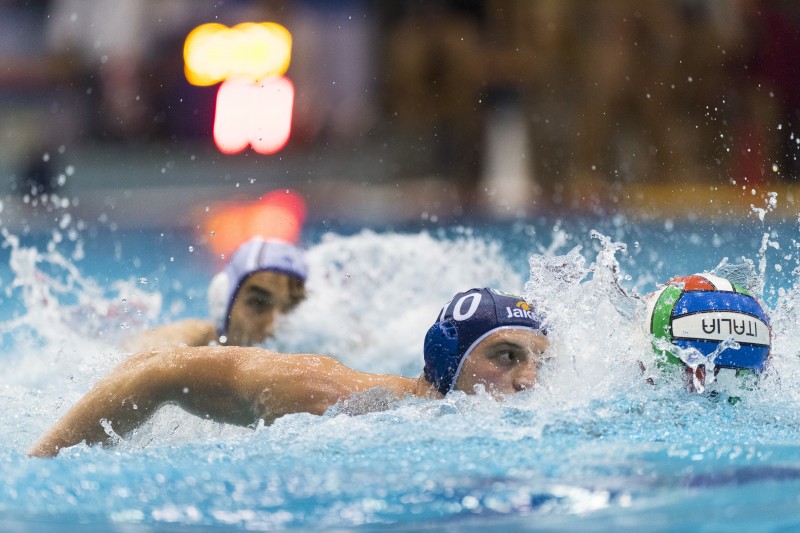
"Hey Hamer, just wanted to say that it was great seeing you last week, and I couldn’t be happier for you and your new opportunity. 100 percent earned! I thank you for being a constant example of finding a reason to create a positive mindset no matter what the circumstances are. I can only imagine that gets challenged often."
This was a text I received just the other day from a former athlete. The ironic part is that while I love this young man, we probably went head to head a dozen times in the weight room, and I think I threw him out at least three times. For those of you who have been doing this for years now, you know that this isn't unusual. Some of the best and hardest-working young men and women I've ever had are also the biggest pains in my rear. I could list many athletes whom I've thrown out of my facility and all are smarter, stronger, and better-looking than I am.
We must grow in order to move this profession, ourselves, and our athletes forward. I promise you that I've learned more from my athletes than I've taught them. Being humble enough to learn from our athletes has truly led me down a path that I believe not only makes me a better coach but a better human.
Below, I'll expand upon something that I've written about and lectured on many times in the past. What follows underlies all that I do as a coach and as a person. This is nothing more than a way to think globally and act locally.
1. Engage the Person
This is where coaching must begin. Too often in the past, I made the mistake of worrying about the athlete, the sport, or the team. I lost track of whom I was working with. Remember, these are human beings.
I remember Bryan Mann telling a story about yelling at a student for being late and then finding out that the student had had the worst day of his life, and that is why he was late. Show some empathy in your coaching.
Be careful with your rules because once you enact a rule, you now must enforce said rule. I threw away my rulebook years ago. However, I do have expectations in the facility that I'm empowered with overseeing. Rules and expectations can be very useful with your students, but they can also become unnecessary and create conflict and division amongst your team.
In addition to being careful about your rules, don't be afraid to reach out to your students. I once had a boss who told me to stop worrying about making the athletes happy and start making him happy (yes, this was said). I did the best I could in that meeting and then went back to doing my job the way I felt it should best be done.
Think about this for a second. If you see 200 athletes today, that's 200 chances to not just make someone better. It's also 200 job interviews, 200 learning experiences, and 200 chances to make an impact on the world. Do that, and it will all work out.

Image credit: Bruno Rosa © 123rf.com
2. Engage the Athlete
Our jobs are based around winning games. Joe Kenn said it this year at the NSCA coaches' conference: We get paid for winning. I want to be a transformational coach as much as the next guy, but we must make our students better athletes. Once you've engaged the person, move to make them a better athlete. This may seem a bit backward, but as I said, engage the person first, then get paid to win games. But let's not forget that we aren't training robots. These are human beings, and if we can't or aren't willing to create trust, we will have a difficult time making the athlete better.
Trust and respect are the keystones of any good relationship, and if we aren't willing to create these things, we won't have success as coaches. Trust and respect are a process, not a destination. Make your training so good that your students know you know what you know. Then, once you have them working hard for you, trust and respect can build upon everything that you do, from training to speaking to your students on the sidelines or after practice.
3. Engage the Sport
Teams are made up of individuals who hopefully share similar goals (win games and improve). No matter how much we hate to admit it, we do not win games. Let me repeat that. No strength coach wins games. We are the process coaches. Our job is to prepare you for the game, and we can't promise victory. What we can promise is this: If the work is done, opportunities will arise for our students.
I realize that there is a debate in our industry about coaches' sideline or game-day behavior. All I can say is that I don't know what the answer is here. What I know is that we should stand shoulder to shoulder with our student-athletes, and we should support them. I wouldn't recommend becoming known as the "hype man." If you are the hype man, that to me means that your team needs someone to hype them up. Test day in the weight room is our game day. Finding out who paid most into our process is our game day. The reality is because we do not win games, we do not know who was most committed to the process on game day. As I said before, all we're doing is giving the athletes an opportunity.
We aren't sport coaches, but there are ways to engage the sport as a strength coach. Do team activities in your training or learn something about the sports you're coaching. I'm now at a school that has squash, sailing, and water polo. So far, these athletes have been honest, but I'm still not sure of the rules of these sports. I will learn as I go, and if I create trust and respect with these athletes, we'll have a chance at improving.
I'll end this article similarly to how I started it— with a story about a former athlete of mine. As anyone who reads my articles knows, I was let go (that’s a nice way of saying fired) from my previous job. After this occurred, I starting getting texts, emails, and phone calls from many people to say how sorry they were or to try to help me get a new job. I expected to hear from some of them, as they've been the pillars of my life as a coach and a person, but one text I didn't expect to receive was from a former student-athlete of mine whom I hadn’t spoken to in over eight years.
To put this in context, I hadn't spoken to this young lady in close to a decade, and I only coached her for one season before she transferred to another school. We did speak a few times after she left, but that was it. For years, we lost track of each other. As it turns out, she was now a college counselor and on the committee to hire a strength coach at her university. She called me and said, "I'm on this committee, and I know that you're out of work. Would you consider coming to work here?"
She then said that she had spoken to the rest of the committee, and they would reopen the search. She asked me if I would apply. I did apply, and I spent a great day interviewing at her university. I was offered the position, but unfortunately, I had to decline. It is a great job, but it wasn't a great fit for me at this point in my career. I think I really would've loved the job. It just wasn't the right time or place for this particular job and for me.
Even though I turned down a great job, this story still has a happy ending because I reconnected with a former student-athlete who is doing great things, and I met some great people at her university. It was also a great opportunity to meet new people and have a new experience. Don’t discredit moments and opportunities like these, as we never know what tomorrow brings. As Jamey Jasta told us, "Tomorrow is not a promise."
Now, go make an impact on the person, athlete, and sport, and keep the person in mind first!











1 Comment